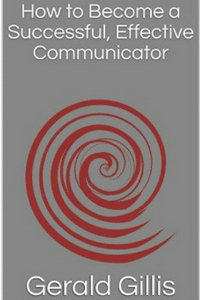Are you sometimes confused by the meaning of the word integrity? Is it a complicated set of principles that can vary according to a particular moral consideration or a specific set of circumstances? Or is it simply doing the right thing because it is the right thing to do?
Ralph Waldo Emerson wrote that, “Character is higher than intellect.” What does integrity have to do with character? Can you have one without the other?
Think of integrity as the quality of having high moral principles, of being reliable and trustworthy. It does not mean you are nearing perfection as a human being, but rather that you can be trusted with words and deeds. Doing the right thing because it is the right thing to do? Of course. If you are described by others as a person of integrity, would it also follow that you have high character? Yes, absolutely.
Now think of groups of people who are presumed to have integrity. Judges, doctors, military officers, and ministers come to mind. True, we can point to examples in each of the preceding groups of dishonest, immoral, and perhaps even criminal behavior. As with any group—business, politics, sports, education, journalism, etc.—we don’t need to search far and wide to discover similar failings. Indeed, it is our human nature to err.
Next, think how hard it would be for our society to function if trust and honesty were the exception rather than the rule. Samuel Johnson noted that, “Integrity without knowledge is weak and useless, and knowledge without integrity is dangerous and dreadful.” As a group, our elected leaders are losing the confidence of the American populace precisely because we are becoming conditioned by their saying one thing and doing another, sometimes blatantly and defiantly.
Business leaders who shamelessly enrich themselves at the expense of their customers, stockholders, and employees reflect poorly on their firms and industries. Judges who take bribes and teachers who sexually abuse their students give us all pause, and disappoint us greatly.
Why? Because they failed to do the right thing.
It need not be any more complicated than that.
For you, if integrity means doing the right thing, even if nobody knows or notices, then you understand the concept. If you behave consistently and use moral principles, reliability, and trustworthiness as your guiding lights, you can rightfully be described as a person of integrity.
It is a description that is earned, and one that should be prized. If you have it, guard and nurture it. If you don’t yet have it, pursue it zealously. It’s certainly worth the change in behavior you will have to make to earn it.
Finally, my latest novel That Deadly Space deals with integrity and ethics in a very substantive (yet fictional) way, albeit in wartime. The novel’s main character, Conor Rafferty, struggles with his share of moral and ethical decisions. He does his best to be a leader whose integrity becomes his guiding light, and his example underscores the above comments. You can find the book here.



